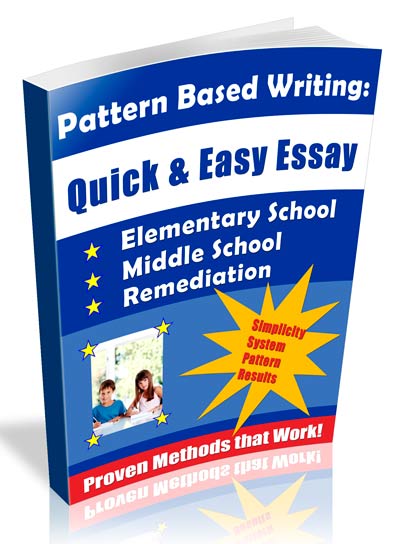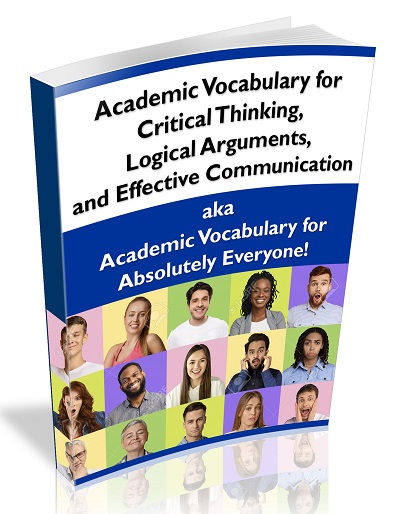State Standards, Standardized Tests, State Writing Assessments, and… Writer’s Workshop?
In the real world of state standards and standardized tests, it can be a little difficult for teachers to get their minds around the purpose and methodology of Writer’s Workshop. For as long as I have been teaching, there has been a continuing push towards making teachers more and more accountable for student achievement.
With Writer’s Workshop, the educational system still holds teachers accountable for results, but the system also asks teachers to take a leap of faith into the world of flexibility. In short, teachers are asked to believe that Writer’s Workshop is the best way to get the results that EVERYONE wants.
Product vs. Process
Writer’s Workshop focuses on the process of writing. Although I use many elements of Writer’s Workshop, I am reluctant to say that I use Writer’s Workshop. I am reluctant because I know that in the end we will always evaluate a piece of writing as a product. Put simply, grades and writing assessments focus on product. Even the Six Traits of Writing model is an evaluative tool that focuses on product, not process.
That being said, when students develop an effective writing process, they are more likely to be able to develop an effective writing product. In other words, I doubt there are ANY writers who are able to get it right on the first try CONSISTENTLY. Writing IS a process, and we don’t need a Writer’s Workshop to make it so. However, understanding Writer’s Workshop is an effective way to understand how to teach writing. It ensures that students learn to write by actually writing, and it ensures that students use the entire writing process regularly.
What is Writer’s Workshop?
Briefly, here are the components of Writer’s Workshop:
1. Mini-lesson (5-15 minutes) – This consists of direct instruction along with a quick practice exercise.
2. Status of the Class (2-3 minutes) – As students begin work on their individual writing projects, the teacher quickly monitors the status of each student. Where is each student in his or her writing project? How will each student be spending his or her writing time?
3. Writing and Conferencing (25- 40 minutes) – Students write, and the teacher can either write or conference with students. The teacher may conference with individual students or with small groups of students. Writer’s Workshop theory encourages teachers to spend at least some workshop time writing themselves to model what authors do.
4. Sharing (5-10 minutes) – There are a variety of ways to share. Author’s chair, peer editing, and reading to at least one other student are popular and effective methods.
Using the Writing Process in Writer’s Workshop
It is important to note that the entire Writer’s Workshop process incorporates the entire Writing Process. Here is a very simple version of the writing process outlined for you:
1. Prewriting
2. Drafting
3. Revising
4. Proofreading
5. Publishing
The actual writing process is not a straight line. In fact, the actual writing process is recursive—i.e., round and round. As Leonardo da Vinci (1452-1519) said, “Art is never finished, only abandoned.” Leonardo da Vinci would have understood the recursive writing process. Besides a pure recursive model, there are additional models of the writing process that more accurately reflect the true writing process. Still, the five-step model outlined above is “the classic version” and one that is easy for students to grasp. Essentially, students will be implementing this writing process during Writer’s Workshop.
Using the Six Traits of Writing in Writer’s Workshop
The Six Traits of Writing is primarily an evaluative tool. However, it is also a teaching tool and a discussion tool. As such, the Six Traits of Writing model has become an almost natural component of Writer’s Workshop.
The Six Traits of Effective Writing are:
1. Ideas
2. Organization
3. Voice
4. Word Choice
5. Sentence Fluency
6. Conventions
Let’s Use More and More Workshops in Teaching!
How important is Writer’s Workshop in creating fantastic writers? The proponents suggest that it is indispensable in creating life-long writers and student writers who can truly write. But before we go hog-wild on Writer’s Workshop, here are some additional workshops where the proponents propose a dire need for the workshop method.
• Reader’s Workshop – Your students will develop independence in reading and become lifelong readers outside of the classroom. Your students will conference with peers and teachers, and yet the focus is always on becoming independent learners. Reader’s Workshop will become the favorite part of your students’ day!
• Independent Work Time (IWT) – Students must have a time each day where they work productively in groups while the teacher meets the needs of individual students. Teachers also need a time where they can challenge advanced students and give support to struggling students—and the Independent Work Time Workshop is the method you should use!
• Math Workshop – Meet the needs of your children! Boring textbooks leave behind the students who can’t keep up, and too much hands-on math ensures that all your students will fall behind. We have the perfect solution. It’s Math Workshop! We have uniquely found the right balance!
I think you will find that a “workshop theory” exists for every single subject you teach. While teachers can create structure out of workshops, workshops are not intended to be as structured as an actual curriculum, or even as structured as a well-thought-out and well-designed teacher plan. Too much indirect instruction and too little direct instruction does not work for most students.
The Truth About Writer’s Workshop
The truth about Writer’s Workshop is that teachers have used workshop strategies for years and years without a lot of the rhetoric associated with Writer’s Workshop. Teachers use many workshop strategies across the curriculum to:
• differentiate instruction
• scaffold instruction
• meet students’ needs.
People get carried away with philosophies, or “isms.” As all teachers know, a new philosophy or “ism” is always waiting just around the corner. As a rule, it is fine when a teacher (as opposed to an administrator) gets carried away with a philosophy, as eventually, the teacher will make the philosophy work. The teacher will become an expert at implementing that particular methodology and will get results with his or her students.
I’ve heard workshop teachers talk in a way that had me thinking they spent a great amount of time in the classroom singing “Kumbaya.” Upon entering their classrooms, I see that these teachers are strict taskmasters. In short, the talk sounds unstructured and haphazard, but the implementation with these teachers is strong, organized, and determined.
In short, a teacher can make most any philosophy work if the teacher is willing to put in the time and effort to master the philosophy. Ideally, the teacher will master the philosophy outside of the classroom on his or her own time so that they don’t waste a great deal of student classroom time experimenting with the philosophy. Teachers do experiment, but a classroom is not a laboratory. Classroom time is valuable and limited!
Philosophies and Out of Touch Administrators, Politicians, and Professional Development Gurus
Does bilingual education work? Well, some people thought it would work even though the teachers were not bilingual. If the teachers are not bilingual, how can you have bilingual education? Certain people believed in the philosophy so much that they were willing to gamble with students’ education and ignore the fact that there were not enough teachers qualified to implement the philosophy. The end result was disastrous. That’s the danger of a philosophy.
Having Writer’s Workshop forced upon a teacher is much like having bilingual education forced upon a teacher. Please note, every teacher can learn a great deal about teaching writing from learning about the Writer’s Workshop. However, for most teachers, it will take a considerable amount of time and practice to make the Writer’s Workshop the best methodology for teaching writing. Some teachers will eventually be able to make it work; some will never be able to make it work. Some students will respond to it; some won’t.
Unfortunately, many decision-makers, researchers, and professional development gurus have not been in the classroom in many years, and many have never been in the classroom. Personally, I use many aspects of Writer’s Workshop, but I also know that I must use my time wisely! I am responsible for getting results. There is not enough time in the day for workshop after workshop, while still teaching the curriculum and meeting state standards and preparing students for the upcoming standardized test. But once again, it’s great to know about all these theories and strategies so that we may continue to grow as teachers!
A Note on Pattern Based Writing: Quick & Easy Essay
As I mentioned earlier, a good writing process is likely to lead to a good writing product. Pattern Based Writing: Quick & Easy Essay focuses on both process and product. It’s intended to get results FAST, but even more important, it’s intended to get results in a way that leaves elementary school students and struggling middle school writers saying, “I really get it! I can’t even read what I was writing before!”
All of the Writer’s Workshop strategies work better when student see themselves as writers, not because they have been told they are writers, but because they read their own writing and it makes so much logical sense that they KNOW they are writers. They know they are communicating important ideas in a way that others will understand and enjoy! Check out the writing curriculum on the homepage!





